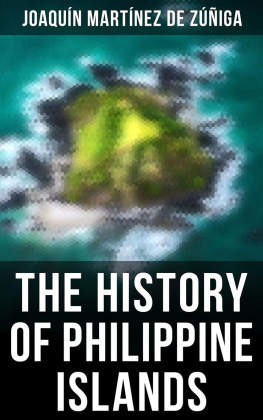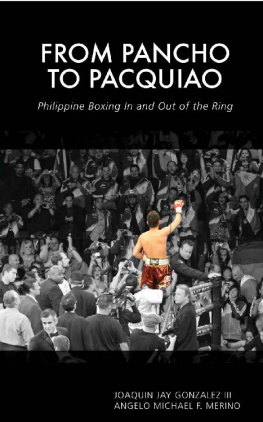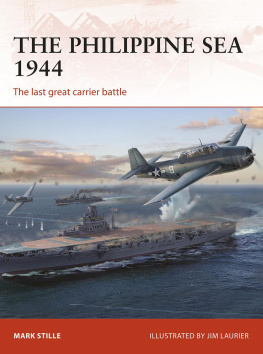The original, of which the following translation is offered to the English reader, is, probably, the only copy which has yet reached this country. Whether the chance which threw it in the way of the translator may be deemed fortunate or otherwise must be left to the decision of the candid public; but it appeared to him that the information it contains respecting a Spanish colony, the most interesting of any other to a British subject, supplies that desideratum so much wanted in our language;a correct view down to a very late period of the Spanish establishments in the Philippines.
The position of these islands, and, indeed, that of the eastern Archipelago generally, whether considered in a political or commercial point of view, is sufficiently important. They form the entrept of Europe, India, China, the immensely extended regions of Spanish America, the north-western coasts of the new, and north-eastern coasts of the old world; and in the storms which at present convulse the political atmosphere of Europe, as well as that of both the Americas, it is not easy even to conjecture what may be their fate.
The productions of these islands are various, and of a value and importance unquestionably high. In the hands of an industrious population, and under a fostering government, there is scarcely any vegetable substance which, by slender exertion, they may not be made to yield, whilst the choicest treasures of the mineral kingdom, lodged beneath their irregular surface, minister largely to the cupidity, and furnish materials for the more enterprising labours of man.
Gold is in abundance; iron, steel, copper, lead, pitch and tar, hemp, cotton, indigo, sugar, cocoa, pepper, betel, cowries, tortoiseshell, mother of pearl and pearls, hides, coyar, tobacco, corn and rice excellent and abundant, with a variety of other productions, contribute to the wants of commerce; while in this enumeration will be found all the articles which, with the aid of the finest building timber in the world, are requisite for the construction and complete equipment of ships of every description.
The established intercourse of these islands with Japan and China offers a ready transit for manufactures; and although it is understood that the East India Company furnishes an adequate supply of our woollen staple to the China market, we may yet fairly expect that British enterprize will not overlook the advantages which the opening of the India trade holds out in this quarter; nor will the introduction of British manufactures into these islands, either with an ultimate view to the above markets, or to those of Spanish America, in any material degree interfere with the staple trade of the Company: there is full scope for adventure in this new vineyard, and labourers will not be wanting.
The political jealousy, and the national and religious prejudices of the Spaniards, have till lately opposed a bar to an extended intercourse with the Philippines; but the tide which hitherto has flowed in that direction seems of late to have commenced its ebb. The events of the last twenty years have been in their nature so extraordinary, and in their effects so powerful a solvent of all the prejudices, fostered by ignorance and superstition, that the dawn of a new day seems to open upon mankind . Let us hope that while these clouds vanish before the morning sun, the great bonds of society will remain unbroken, and that the liberties of Europe, and consequently those of the world, will be fixed on a permanent foundation.
The well-wisher to the temporal and eternal felicity of the human race will hail, with becoming exultation, the opportunity which it is hoped will now be offered of spreading the Christian faith, and amicably and peaceably lending the reformed religion in aid of the Catholic missions, to civilize the population of this extensive portion of the eastern hemisphere.
As a literary production, the original has probably little claim to merit, the author conveying his matter in a style more monastic than flowing; at the same time that he seems to be generally under the influence of that bias, which an early seclusion from life entails upon the mind, and upon which even his official opportunities of intercourse with the best society in Manila seem to have had a very limited effect. The translator has found him too often occupying his pages with contentions between the respective religious orders, insignificant in their nature even to a Spaniard, and so much more so to the English reader, that he has taken the liberty of altogether omitting them in the translation, except where connected with the political affairs of the settlement; and although by these means several of the chapters are reduced to almost nominal importance; yet considering the division of the subject in this form as adopted on fair grounds by the author, he hopes he will be deemed justifiable in retaining it even with the sacrifice of something of appearance.
Having said as much as he hopes can be urged against the original production, the translator willingly advocates Zuiga's cause in respect to its intrinsic value, as giving to the public the only correct view of this interesting settlement, purporting to be brought down to the peace of 1763; but in fact, as we may reasonably conclude, extended to the period of publication at Manila in 1803. From information which may be fully relied on, it appears that Zuiga may, with more propriety, be deemed the editor than the author, as he was in Manila, and superintended the publication in 1803; with the credit of having only arranged for the press the papers of a deceased collector; a conclusion justified by the circumstance of the work closing with the peace of 1763, for there could not be any very solid reason for his declining an account of the forty years intervening between that event and the period of publication, had he himself been the author. If, however, we are by these means without a detail of the actual events which took place, it is probable we may have less cause for regret on account of the very limited progress which we well know improvement, or even amelioration, have been suffered to make under the Spanish monarchy during the period in question. At any rate, we have grounds for supposing that if any alteration, favourable or unfavourable, has taken place, Zuiga has contrived to weave it into the work; for it is asserted by those whose residence renders them competent judges, that the view he gives of the settlement is correct to the latest period.
The origin and language of these islanders have engaged the attention of our ablest orientalists. From certain similar characteristics in the persons of the inhabitants of the interior, or aborigines of the islands, they have hitherto had an African origin assigned to them; and nearly from the same source (Madagascar), it has been supposed that the Malay population has flowed, which has in a great measure inundated the Archipelago, as well as some parts of the continental coasts.
Similarity, or even approximation of language and manners unquestionably offer great facilities in enquiries of this nature, and they have accordingly been resorted to by all our oriental physiologists in their researches respecting the eastern Archipelago; and so far as regards the Malays and Malayan language, these researches have been attended with corresponding success; but in respect to the aboriginal language, or Tagalic, very slight attempts have been made to trace it beyond the quarter in which it was found to prevail. Our author has not failed to enter into the discussion, and from the premises he lays down, not unreasonably, draws the conclusion that the Tagalic language and original population of all the islands westward of the coast of South America derive from that continent.







